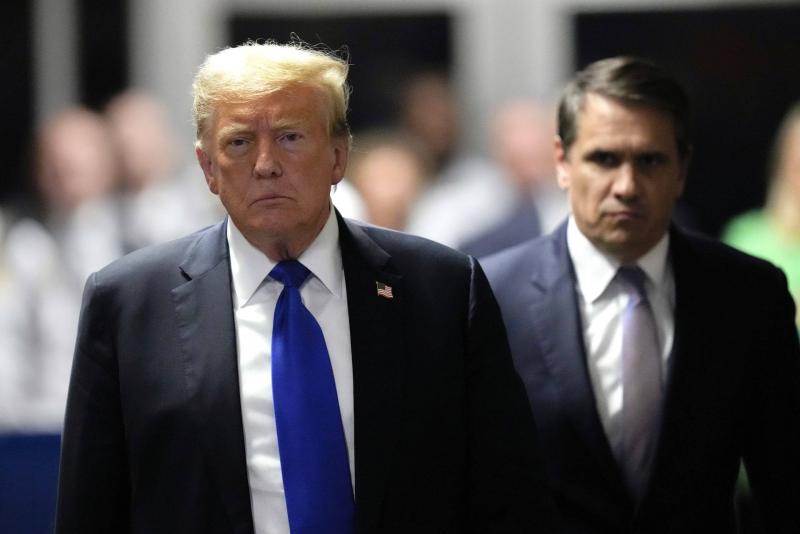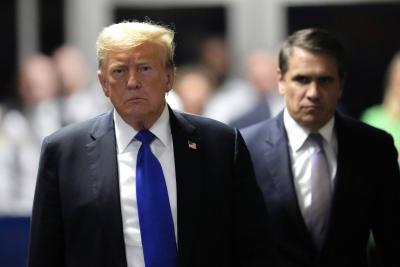Despite Donald Trump becoming the first former American president to be criminally convicted on Thursday, the Republican billionaire can still continue his campaign to return to the White House, as the U.S. Constitution does not prohibit individuals with criminal records from holding the presidency. Ironically, the Republican candidate, who was annoyed by having to step away from campaigning for sessions that began on April 15, averaging four days a week, regained his full freedom with the conviction handed down against him, at least until early July.
Release without Bail
Judge Juan Merchan set July 11 as the date for announcing the sentence. Pending the sentencing, the judge released Trump without bail. The sentencing date is just four days before the convention where the controversial billionaire will officially be named the Republican candidate for the presidential election scheduled for November 5.
Guilty on 34 Charges
The judge gave Trump’s defense team until June 13 to present their arguments before sentencing, with the prosecution having until June 27 to respond. During a press conference in which he welcomed the jury's conviction, prosecutor Alvin Bragg stated, "The jury has spoken" when they found the defendant guilty on all 34 charges against him.
Prison or Probation
He added, "The only voice that matters is that of the jury, and the jury has spoken," indicating that the 12 members unanimously convicted the defendant "on 34 counts of aggravated falsification of business records to conceal a scheme aimed at disrupting the 2016 elections."
Trump theoretically faces a prison sentence, as New York law imposes a maximum of four years for falsifying business records. However, this penalty could be reduced if the convicted individual has no criminal record, which applies to Trump, who will be 78 years old at sentencing. Considering the defendant's criminal record, the judge might sentence him to probation, community service, or a monetary fine.
Appealing the Verdict
In any case, Trump has a month to inform the court of his intention to appeal the ruling, followed by several months to formally do so. Just hours after the conviction, attorney Todd Blanche, Trump’s primary defense counsel in this case, announced that the defense team would appeal "as soon as possible." Blanche told CNN, "We will appeal the ruling as soon as possible," clarifying that "in New York, procedures require the sentencing to be delivered first, and then we appeal."
It is likely that appealing the sentence will suspend the effects of all resulting penalties, especially if one of those penalties is prison time.
A Sentence That Doesn’t Bar Him from Presidency
Ironically, Trump's conviction does not nullify his candidacy for the presidential election, and he can run even if he receives a prison sentence and is incarcerated. Immediately after the ruling, Trump rushed to denounce the "fake" trial, criticizing the verdict against him as he is “an innocent man,” asserting defiantly that "the real verdict" will be issued by voters on Election Day, November 5. It is unlikely that Trump's trial in this case will begin the appeal process before the presidential election.
He Cannot Pardon Himself
If Trump wins the presidential election, his conviction will not prevent him from taking office in January 2025. Conversely, if he returns to the White House, Trump will not be able to pardon himself or issue an order to halt the prosecution in this case, as the judiciary responsible for it belongs to the state of New York and not the federal government.




